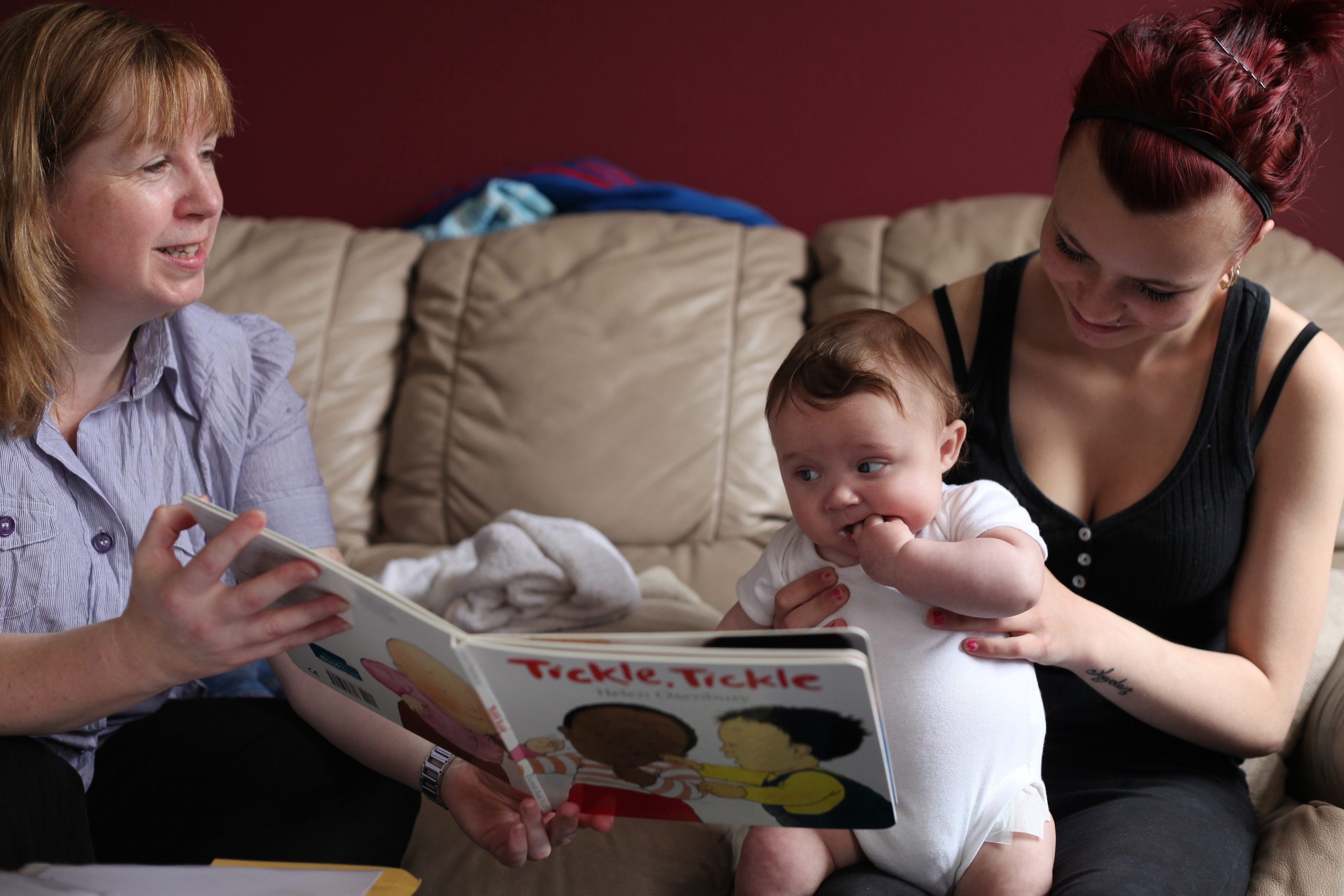
Why relationships are key to good social work
news | Words Sarah Gillinson | 17 Mar 2017
Positive interactions between social workers and families are essential, but too often policies and practices act as a barrier.
Positive interactions between social workers and families are essential, but too often policies and practices act as a barrier.
This article was written by Sarah Gillinson and published in the Guardian.
////
Sitting around a table at a children’s centre in Essex are three families. With cups of tea in hand and their children playing next door, they share experiences of being parents and the role professionals have played in supporting them. In particular, who do they trust? Which relationships have made the difference?
The conversation was part of a project run by Essex county council, which aimed to enhance “relational capability” across the county’s early years, with support from us here at Innovation Unit and OnePlusOne.
Relational capability is the ability to have positive social interactions and relationships where all parties benefit. For social workers, it means thinking about how their own beliefs and behaviours combine with professional rules and regulations to influence the relationships they have with those they support.
The Essex project explored why relationships between families and practitioners matter, and strengthened understanding about what may help or hinder. We heard from people who needed extra help looking after their children. Their individual circumstances were very different but they mainly said the same thing: the quality of their relationship with social services was important. Families wanted to deal with one person who understood them and could help them in a way that worked for them.
Relationships matter. Our quality of life, our happiness, our ability to cope when times are tough are directly related to the degree we feel connected to others and can rely on them for support. It’s not just relationships within families that help them to thrive.
Research from the Harvard Centre on the Developing Child found the most important factor in the success of services provided by a care professional is the quality of their relationship with the family in question. When practitioners know how to connect with families, are able to listen and discover what’s really going on beneath the surface, build trust and find ways to explore solutions together, then life outcomes for children can be transformed.
It’s no wonder service users have a mixed experience – social workers manage a tricky balance. They do their best to support families to grow safer, more nurturing environments for their children, while at the same time assessing risk with a view to removing a child if they can’t reduce it. It’s hard to build relationships when your job it is to take a family to court unless things change.
This is especially hard in a system that encourages box ticking rather than relationship building, and that often demands a focus on a family’s weaknesses rather than strengths. Frontline practitioners deal with large caseloads, under pressure to assess and monitor risk and comply with many rules and regulations. They are not incentivised or supported to build the mutual understanding upon which good relationships are based – relationships that can make all the difference for an individual or family, and reduce risk to a child.
So, what if we set out to create a social care system where human relationships are given a much higher priority and allowed to flourish – while managing risk at the same time? A system in which both social workers and those they support can thrive.
Our work with Essex county council showed the importance of creating the right culture and incentives across the system. This means demonstrating the importance of good relationships at all levels, from leaders to frontline practitioners. It means making the quality of relationships a priority for everyone, highlighted within the organisation’s vision, in service contracts, as part of recruitment criteria, and in individual performance and accountability frameworks.
Culture change must be underpinned by support for practitioners to change their priorities and practice – shifting emphasis from the speed at which someone exits the system, to relationship building and giving the individual or the family more power to be part of the solution. In Leeds, for example, the entire children’s workforce has been trained in restorative practice, working with and alongside families to repair harm. One of the ways they do this is to use family group conferencing to focus on what the family wants to happen, instead of professionals making decisions for them and without them.
Redesigned roles can give social workers the time and space to respond flexibly to the needs and circumstances of individuals. The Department of Health named social worker project, delivered by Innovation Unit with the Social Care Institute for Excellence, involves allocating a dedicated caseworker to adults with learning disabilities. When a professional is the primary point of contact for all care and treatment, more meaningful relationships can develop, and the social worker can ensure that person is able to access all the support they need, while continuing to assess risk.
In truth, this isn’t about innovation. It’s not about asking most social workers to do anything new or radical. It’s about incentivising a new balance between risk management and relational support by enabling social workers to do what they do at their best: to see and build on people’s strengths, head off problems before they become crises, show empathy, and offer creative and flexible support, focused on the long term.
Without this kind of human interaction there are no relationships. Without relationships, there is no trust. And without trust there is only so much a social worker can do.